Jun. 1, 2023 By Carlotta Mohamed
A new program at York College is providing under-resourced students across Queens the opportunity to gain critical digital literacy skills and introduce cybersecurity concepts.
The program, The York College NASA STEM Cybersecurity Program Powered by AT&T, was designed to provide students who would not otherwise have access to digital literacy while opening the door to the possibilities in the rapidly growing industry of cybersecurity.
AT&T’s support for this program is part of the AT&T Connected Learning initiative, and the companywide $2 billion commitment from 2021 to 2023 to help address the digital divide through internet accessibility, affordability and safe adoption.
The NASA STEM program has provided innovative education opportunities to more than 30,000 Queens students over the past two decades. With cybersecurity career opportunities growing, AT&T supported this year’s effort to bring these critical foundational skills to the students.
“AT&T is thrilled to collaborate with York College again to provide access to this innovative digital literacy program focused on cyber security for Queens youth. This work reflects our commitment to help address both the digital divide and connect students and their families to the skills, tools and resources they need to succeed in the digital world,” said Robin White, director, External Affairs, AT&T. “This marks our sixth year of supporting digital literacy programming for under-resourced students to gain critical digital literacy and we are proud to continue to invest in the future of New York and help Queens be the home of one of the next groundbreaking cyber security experts, data scientist, or computer expert.”
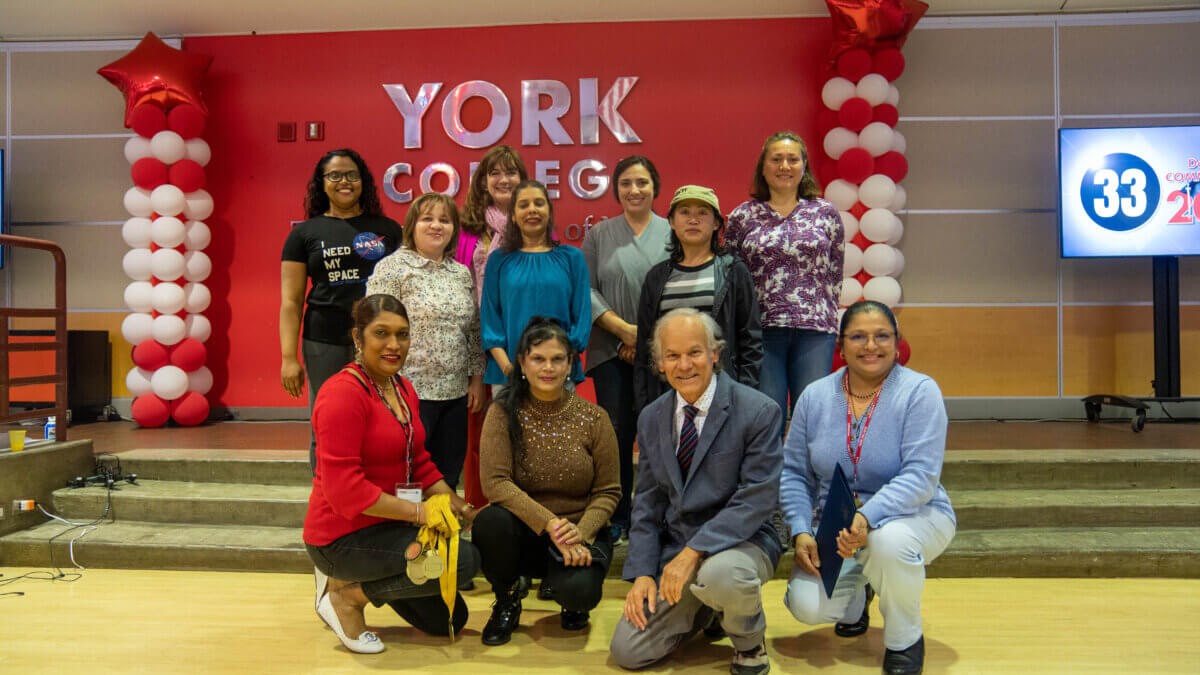
Photo courtesy of York College
Nazrul Khandaker, a York College professor and program director of the NASA STEM program, said the college is extremely thankful to AT&T for their ongoing support of early technology-focused learning for the children in the Queens community.
“This support is pivotal in continuing to offer free STEM and digital literacy opportunities to students to ensure they have the technology skills to thrive in the digital world, which was started more than 20 years ago and has touched the lives of thousands of young students through education,” Khandaker said.
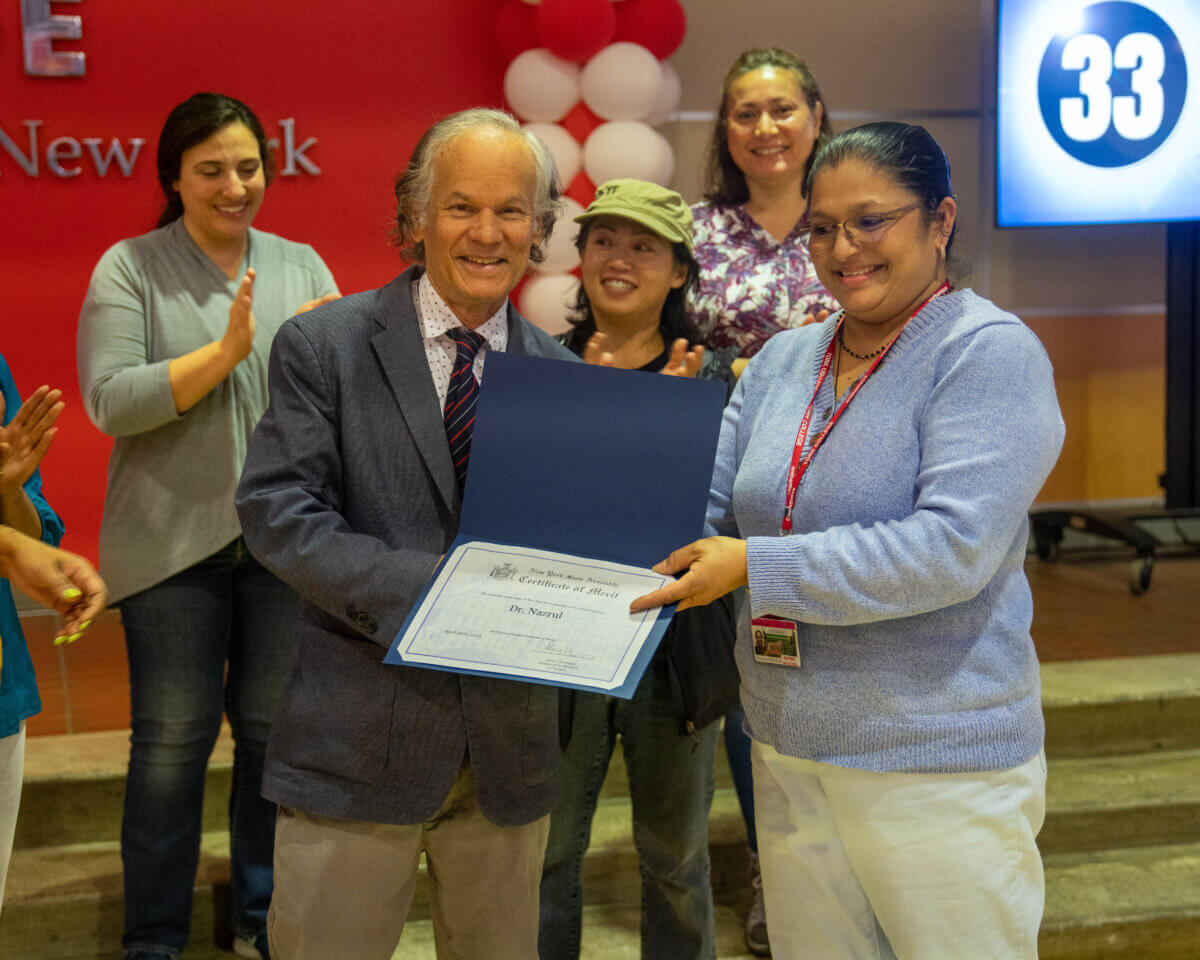
Photo courtesy of York College
Through curriculum, research, and ultimately student-created content, the students learned about the rapidly growing careers in cybersecurity and how it is becoming the most important industry because it is essential to everyday digital life.
The York College NASA STEM Cybersecurity Program Powered by AT&T consisted of 185 local students throughout the three cohorts – there were 80 students in the summer 2022 class, 45 students in the fall/winter 2022 class, and 60 students in the spring 2023 class.
To ensure effective engaging cybersecurity lessons, each class size was limited to approximately 20 students. The duration of the program ranged from six to seven Saturdays and three hours each Saturday. Lessons utilized reputable and secured government agency content and online resources.
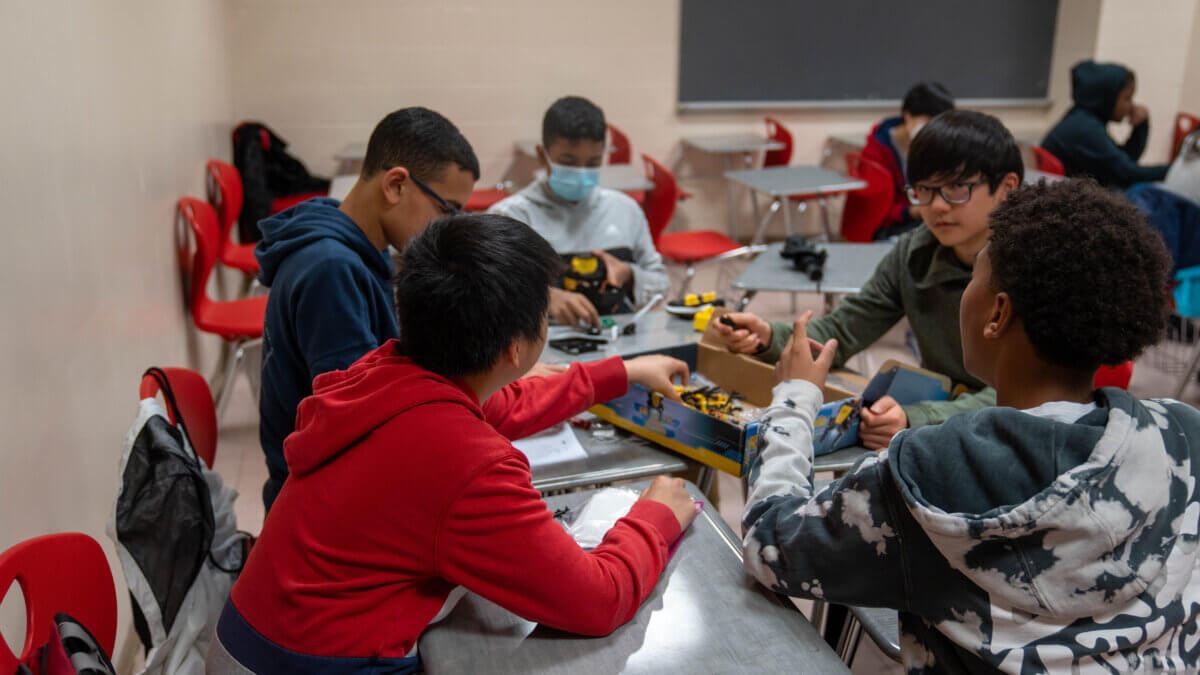
Photo courtesy of York College
Returning students in each session worked as mentors for newcomers and made peer mentoring initiatives highly effective. The other notable contributions of these returning students were in recruiting and building new cohorts while providing support to students.
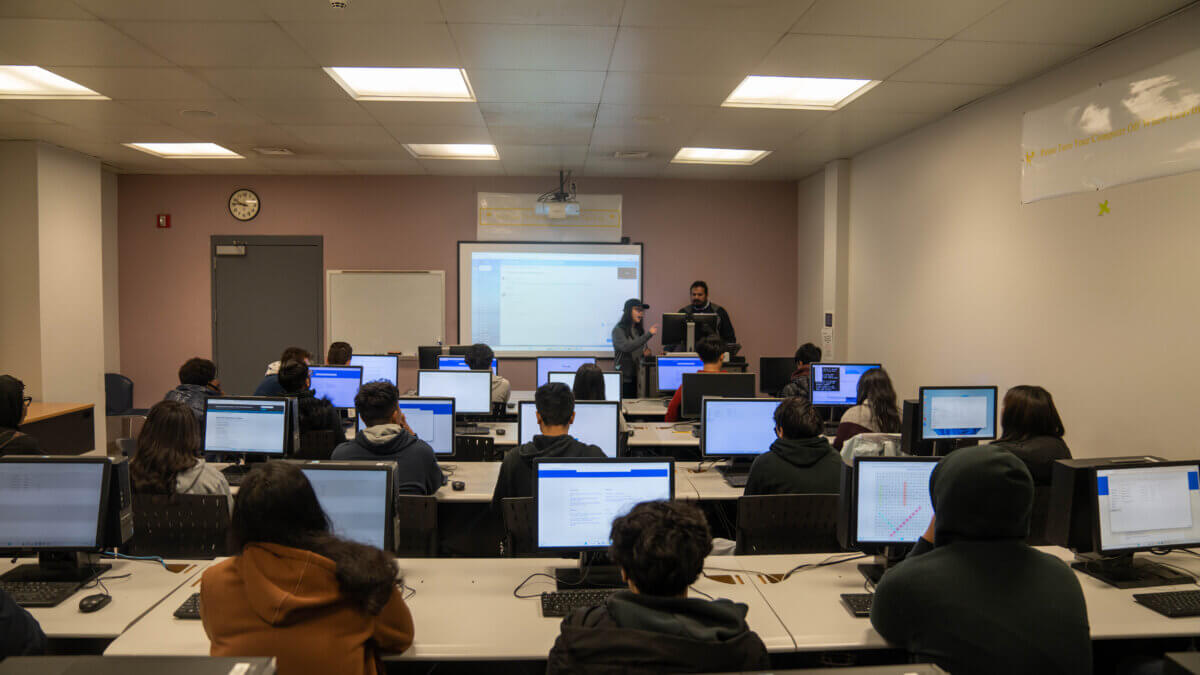
Photo courtesy of York College
The program also featured guest lecturer presentations, including an introduction to computer science and related content such as Hexadecimal editing, Python, General Linux terminal usage and such topics as ethical hacking and case studies in computer ethics. Interactive and gamified content was also utilized for the lessons, such as the “see something say something challenge” from DHS and the cybermission website.
The spring program, which ended on April 29, returned to in-person learning for the first time since the COVID pandemic. The first part of the programming in the summer and fall was done virtually and classes were completed simultaneously with the students following the guest lecturer’s instructions in real-time.
Because some of the students were impacted by digital divide issues and did not have the necessary computers or connectivity to follow along, York College’s computer laboratories’ skilled technicians collaborated to ensure the students had the technology to participate.
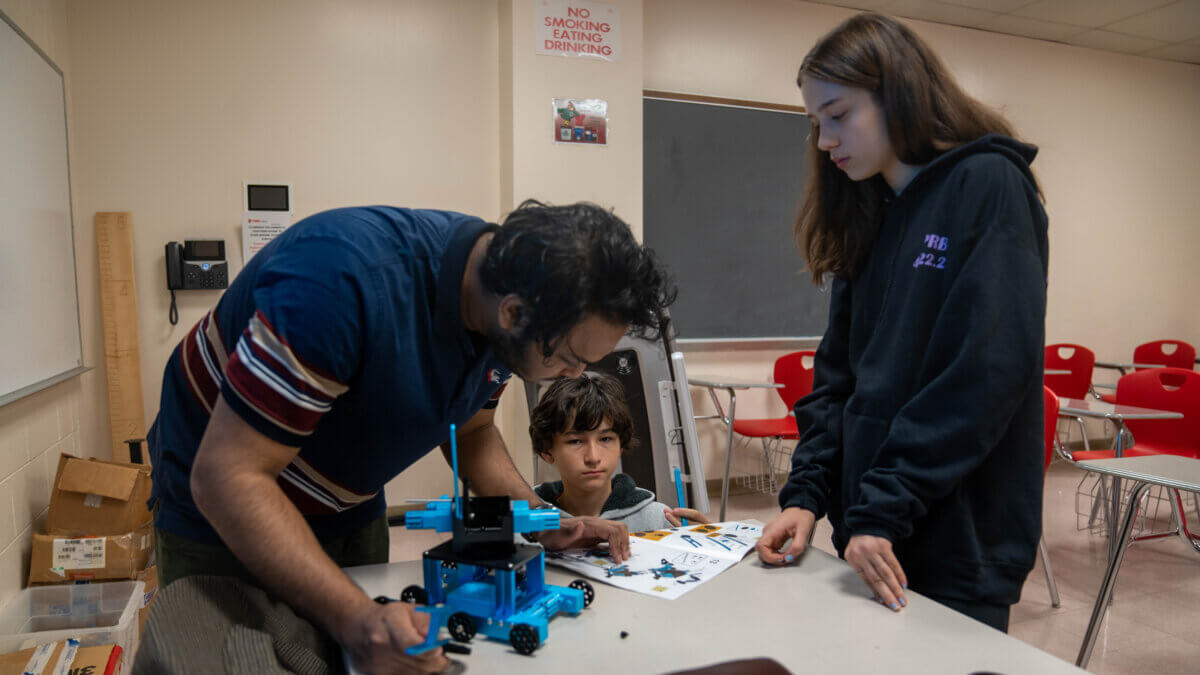
Photo courtesy of York College
Students attending the in-person part of the program were able to form groups more organically, be more outspoken (as opposed to muting the microphone and turning off the camera), and generally participate more as a cogent group.
Some students shared their experience participating in the program.
“The program provided an amazing opportunity for many students,” said Jessie Chen. I learned a lot about cybersecurity—something my school doesn’t teach. I even got to experience the computer labs at York College.”
Rahiq Alam, Michael Zapesky and Shahir Uddin said they thoroughly enjoyed the program.
“Seeing the teacher code and explaining what he was doing demystified the process. It has made these tasks seem easy to do as long as we do a little research beforehand,” the students said.
Fei Chen, Wei Xiang Zheng, Vincent Lu, Jimmy Zheng and Rozalen Adous shared that for some it was their first step in working with Linux and being introduced into the field of quantum computing.
“There were several sessions where we learned about cybersecurity through online activities such as websites or games, which taught us information that was very useful to know and would protect us in real life,” the students said.
According to Khandaker, this year’s participants were a joy to work with and are “very talented budding technologists.”
“Being in-person, students were delighted to interact, partner, and share knowledge with each other,” Khandaker said. “Group activity certainly helped resolve problems and generated a conducive learning environment where individual input was appreciated. Several students were so captivated, they reached out to us during weekdays to receive feedback. I think they all have the capabilities to excel in the future.”